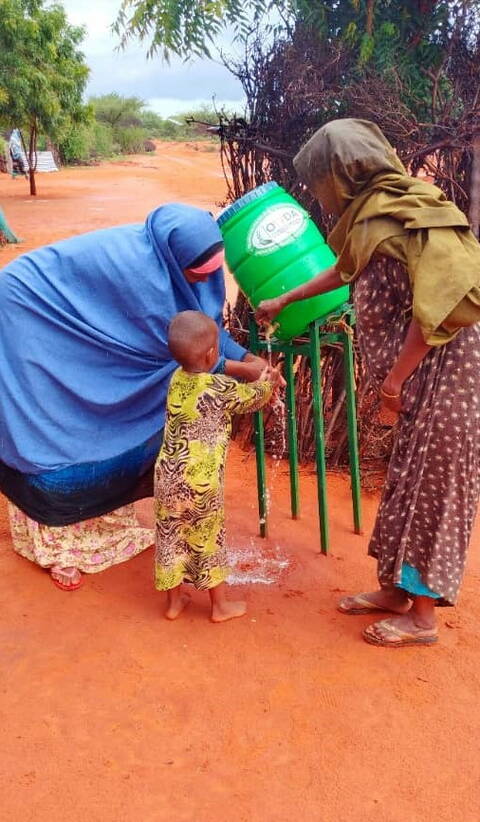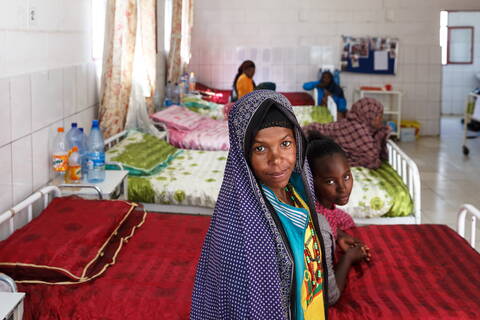Solidarity in times of the COVID-19 pandemic
updated continuously
COVID-19 has arrived in our project countries. Although the number of official cases is still relatively low, it has been rising exponentially in the past days. Therefore, taking immediate action is extremely important. Once the virus widely spreads, the fragile healthcare systems will be overwhelmed. Resources for economic aid do not exist. As a result, poor sections of the population will quickly suffer from hunger. Immediate preventive measures are therefore the only chance to avoid a disaster.
How we support our partner organisations on site:
Ethiopia
In Ethiopia there is an official lockdown until at least the end of August. Although all schools, mosques and churches have been closed, most of the shops remain open. The low infection rates are most likely due to the low testing rates.
Attat Hospital, Welkite
At Attat Hospital a triage system has been introduced to quickly detect suspicious cases
and to separate them from other patients. Disinfection stations were set up at the entrance and exit gates. The hospital produces disinfectant itself. Since public transport has been minimized, practically only emergencies and women in labor come to the hospital.
St. Luke Hospital, Wolisso
At St. Luke Hospital, new patients are first examined and screened for COVID-19, using fever measurement in a newly erected triage tent. People with fever are being isolated. The director of the hospital instructed the heads of the departments about the safety measures and tries to keep the motivation amongst the employees high, despite the financial bottlenecks of the hospital.
Hamlin Fistula Ethiopia, Addis Adeba
The Hamlin Fistula Ethiopia is doing everything possible to continue to function as a health facility and at the same time ensure the safety of its employees. Disinfection stations have been set up at all the hospital entrances. The office and shop are closed and the teaching of prospective midwives has been changed to distance learning and home schooling. However, this is a challenge for many students, as not all of them own a computer or have access to the Internet at home.
OWDA, Somali Region
In the Somali region, health facilities are particularly limited. For example, there is only 1 ventilator for approximately 10 million Ethiopians in the region. The projects of Women's Hope International such as the "Mobile Clinics" are currently being continued, with the employees wearing protective clothing. The local staff of Women's Hope International and representatives of our partner organisation OWDA are represented in various committees to plan and implement protective measures together with the regional health office. The health office has already set up a hotline for information on health during the pandemic. A test laboratory for COVID-19 was opened at the University of Jijiga.
Bangladesh
Our partner organisation in Bangladesh, LAMB, is currently producing disinfectants, soap and masks itself due to lack of availability. Except for the hospital, all facilities are closed. A new triage system has been installed in front of the hospital to quickly separate Covid-19 cases from the rest of the patients. An isolation room and additional washing facilities have been installed.
Chad
Our partner organisation in Chad, BASE, is currently implementing a prevention campaign. "Ambassadors" raise awareness among communities about the essential practices for protection against the virus. Posters and brochures are displayed in health and administrative centres. Local radio stations broadcast spots on prevention of COVID-19. Two dozen hand washing basins have also been delivered to health centres.
Solidarity is essential: DONATE NOW!
The crisis particularly affects women and Girls
Women and girls are more affected by the consequences the pandemic. Firstly, over two-thirds of the workers worldwide in the field of care and health are women. This increases the likelihood of becoming infected with the virus unequally. With the shutdown of public life and schools, the pressure on women continues to increase: they are responsible for most of the additional work in childcare and houshold work.
Additionally, an increase in domestic and sexual violence can already be observed worldwide. We also know from past crises such as the Ebola epidemic that quarantine conditions lead to an increase in unwanted pregnancies, especially among girls. Many do not return to school even after the crisis is over.
The crisis threatens the entire field of sexual and reproductive health: resources are being diverted in favour of emergency aid, contraceptives, education programmes and health services relating to pregnancy and childbirth are being reduced. Due to overburdened health systems, lack of transport or financial resources, it is to be feared that more women will give birth at home and without specialist care. This will lead to an increase in birth complications and injuries (such as obstetric fistulas) and higher maternal mortality.
Solidarity is essential: DONATE NOW!
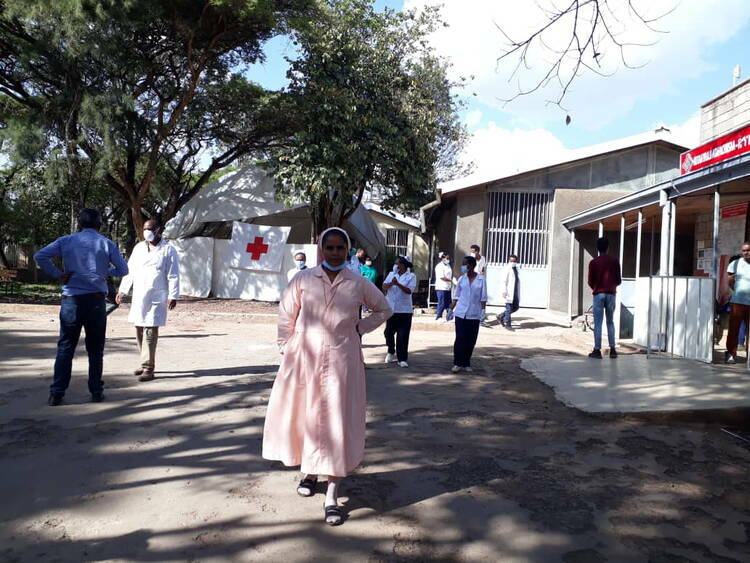
Ethiopia: Sister Clara Roseline, General Manager of St.Luke's Hospital in Wolisso, in preparation for the COVID-19 pandemic.
Make a donation for the protection and health of women and local communities during the corona crisis! (with reference "Covid19")
Ethiopia:
Protection measures at the Attat hospital and the St. Luk Luke Hospital
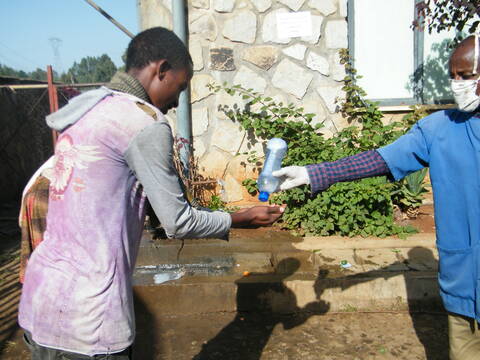
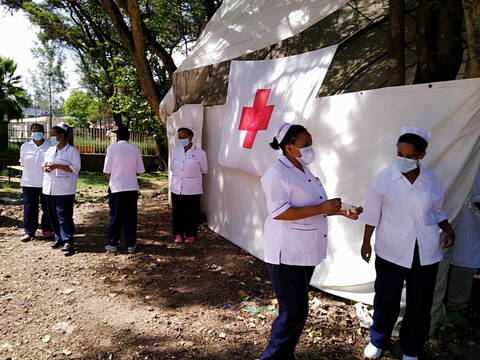
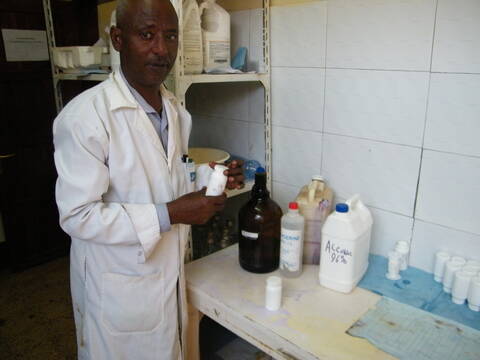
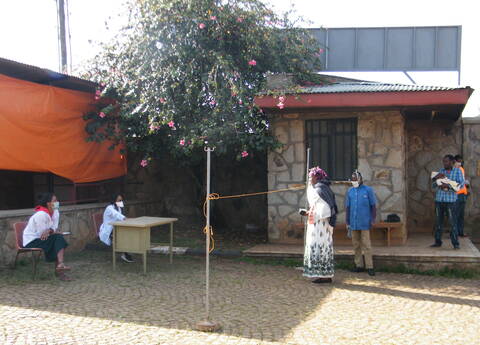
Chad:
Awareness Campaign of our partnerorganisation BASE
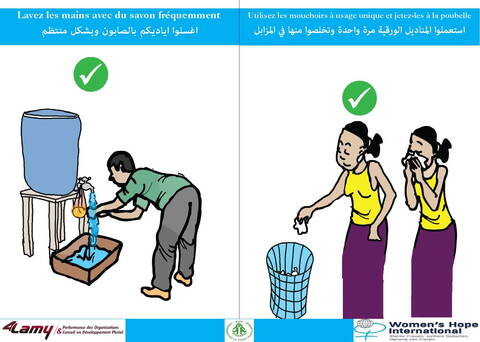
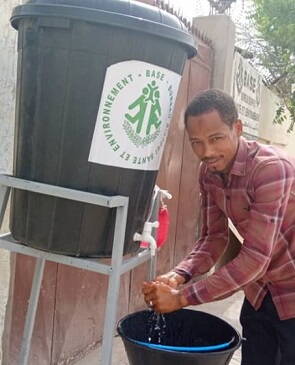
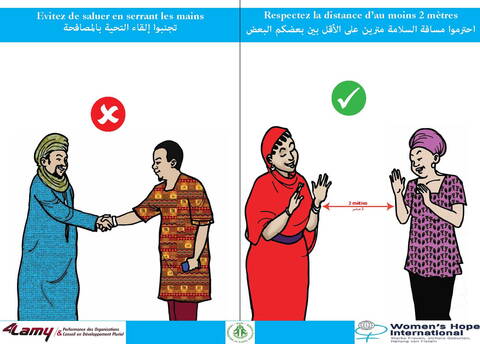
Hand washing Station of the mobile health clinic in the Danot District (Somali, Ethiopia)
